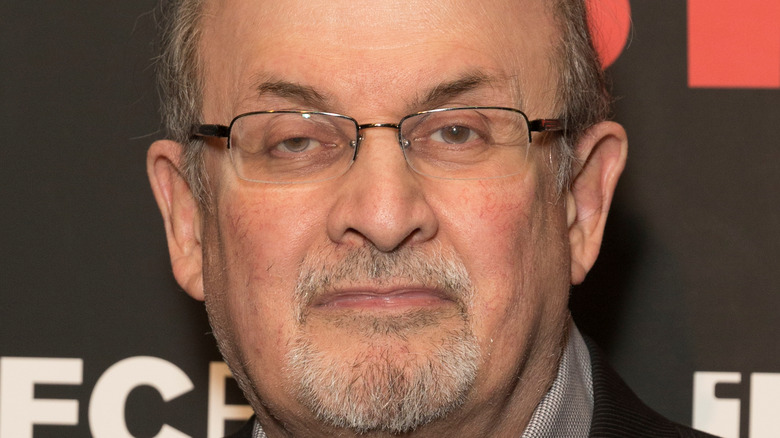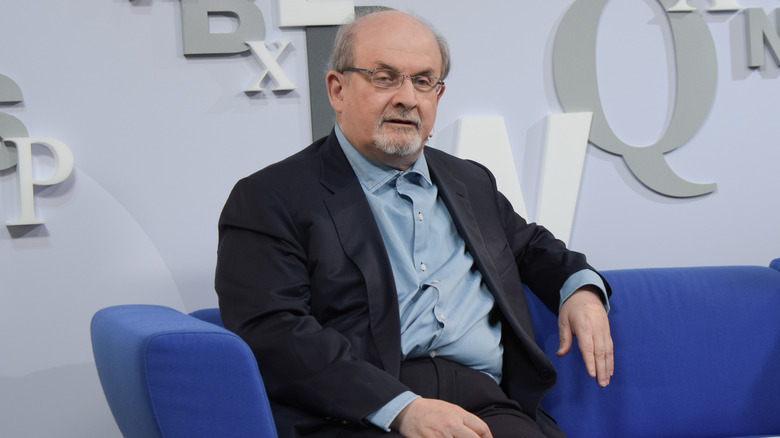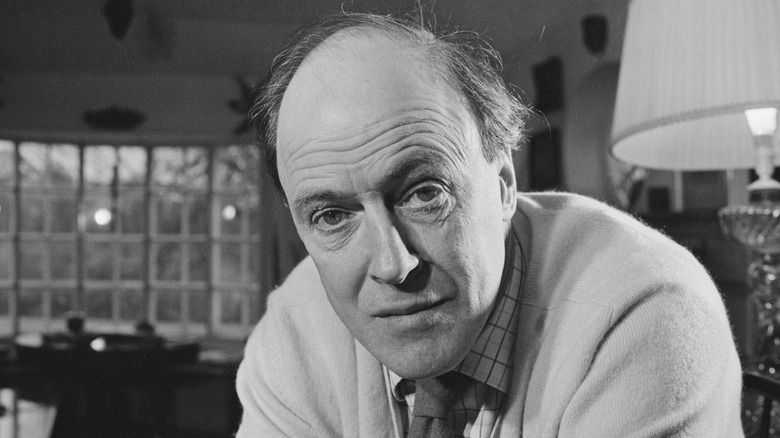Why Roald Dahl Hated Salman Rushdie's Fourth Novel
Salman Rushdie is one of the most acclaimed writers of the modern age. Known for novels like "Shalimar the Clown" and "Two Years Eight Months and Twenty-Eight Nights," Rushdie is a prolific and well-reviewed writer who won the Man Booker Prize in 1981 for his novel "Midnight's Children" (via Britannica). The prize is an annual British award for the best full-length novel in English (via Britannica). His writing covers many different topics and cultures, but much of it is tied together by the inclusion of magical realism, a technique that is used in many of his stories and books (via Penguin).
Rushdie's tendency towards magical realism is paralleled by Roald Dahl, another famous and prolific author. Dahl, whose most famous books include "Charlie and the Chocolate Factory" and "James and the Giant Peach," specialized in writing magical children's books (via Britannica). As a kid's writer, you might assume that Dahl stayed away from serious literary discussions, but he didn't hesitate to dip into more controversial arguments. He weighed in on one debate about Rushdie, sparking a feud between them when he called the Booker Prize-winner "a dangerous opportunist" and disparaged his fourth novel (via The New York Times).
The controversial choices of Salman Rushdie
Though literary feuds have always existed — see Ernest Hemingway vs. William Faulkner, or Jean Lorrain vs. Marcel Proust (via LitHub) — perhaps no famous author has been involved in so many of them as Salman Rushdie. Rushdie is a vigorous proponent of free speech, so maybe it's no surprise that he sometimes ventures into taboo or controversial topics (via Penguin). Over the years, Rushdie has feuded with several famous authors, including John Updike, Peter Carey, and John le Carré (via Keeping Up With the Penguins).
These were real feuds. Rather than offering thinly-veiled, semi-diplomatic digs about literary merit, Rushdie and his opponents came out firing. Take, for instance, Rushdie's rivalry with Updike. After Rushdie received a negative review from Updike, he responded by lambasting Updike's newest novel as "beyond awful" (via Keeping Up With the Penguins). Similarly, he called le Carré a "pompous a**," "ignorant," and "semi-literate" after le Carré agreed with some critiques of Rushdie's 1988 book, "The Satanic Verses."
But le Carré wasn't the only one to have a problem with "The Satanic Verses." The book, which uses magical realism and satire to tell the story of the Muslim prophet Muhammad, earned Rushdie a host of criticism, including some pointed words from Roald Dahl (via The New York Times).
Why Dahl disparaged Rushdie
Published in 1988, "The Satanic Verses" was praised by literary critics (via Britannica), but it wasn't as well received among Muslim populations, who said the story mocked their culture and was blasphemous (via The New York Times). Rushdie received a host of criticism, and eventually the Ayatollah Ruhollah Khomeini himself declared Rushdie should be put to death because of the book. As a result, Rushdie had to live in a safe house for several years (via Ham & High).
Some people came out in support of Rushdie and free speech. But other famous authors sided with the critics. Though they mostly decried the death threats Rushdie was experiencing, figures including John Berger, Jimmy Carter, and Roald Dahl chided Rushdie for taking his subject matter too far (via The New York Times). Dahl in particular wrote that Rushdie "must have been totally aware of the deep and violent feelings his book would stir up among devout Muslims. In other words, he knew exactly what he was doing and cannot plead otherwise. This kind of sensationalism does indeed get an indifferent book on the top of the best-seller list — but to my mind it is a cheap way of doing so."
Rushdie never responded publicly to Dahl's critique, though he clapped back at other critics. In the end, it's difficult to see who came up on top in the feud between the two famous men. But if their book sales are anything to go by, maybe they both did.


